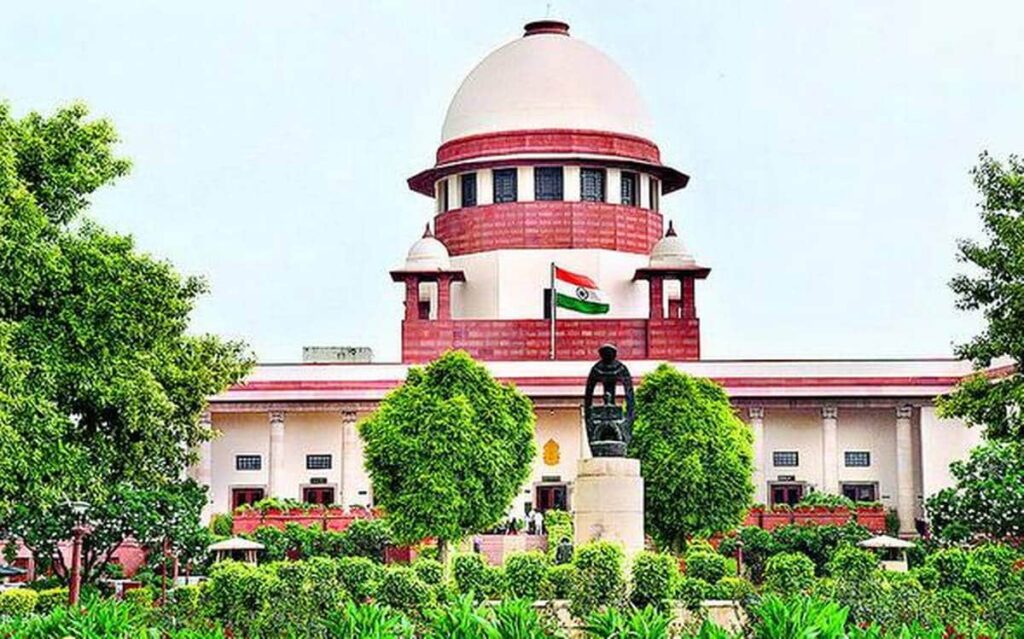NEW DELHI, Dec 8: Expressing its strong displeasure over continuous attack from the government, the Supreme Court on Thursday said nobody was stopping the government from bringing a new law on judicial appointments but till such measure was taken the current Collegium System on judicial appointments and its Memorandum of Procedure (MoP) was the “final word.”
The court’s remarks to the government came after the vice-president Jagdeep Dhankhar on his first day as the chairman of the Rajya Sabha strongly criticised the apex court striking down the National Judicial Appointments Commission (NJAC) Act by a Constitution Bench in October 2015. Mr. Dhankhar, obliquely referring to the NJAC law, said the court had “undone” the will of the people expressed through Parliament.
“Yes, Parliament has the power to enact laws. The government can ask the Parliament to lay down a new law. Nobody can prohibit it. You want to bring a new law, gather consensus, you can always do that. However, then you may have to stand the scrutiny of a challenge… The scheme of the Constitution requires the court to be the final arbiter on the position of a law as enacted by Parliament,” Justice Sanjay Kishan Kaul, leading a three-judge Bench, addressed Attorney General R. Venkataramani, for the government.
The court said the law on judicial appointments to the High Courts, as it stands now, is the Collegium system evolved by the Supreme Court in the Three Judges cases. “Our job is to enforce the law as it exists now. When you (government) lay down a law, you expect the Supreme Court to enforce it. Similarly, if a law (Collegium system) is laid down by the Supreme Court, then the government is equally bound to follow the law… Till the law of Collegium is prevalent, it should be followed to the ‘T’,” Justice Kaul admonished.
The court said comments made by high authorities about the Collegium were not “well-taken.” “We have to follow the Collegium system no matter what people would speak of the Collegium rightly or wrongly at the right place or the wrong place… If every person or section of the society decides what law to follow, there will be a complete breakdown,” Justice Kaul said.
Law Minister Kiren Rijiju had been relentlessly attacking the Collegium over the past days for its “opacity” even as the government remained incommunicado over Collegium recommendations of names to fill up judgeships. Supreme Court Bar Association president, senior advocate Vikas Singh, urged the court to issue contempt action to bring the government in line. He said the comments made by the government directly attacked the court’s constitutional power of judicial review.
“And now a lot of people will say the Basic Structure is not part of the Constitution…” Justice Kaul said in response. The court said it cannot engage in a “ping-pong battle” or a “blame game” over Collegium recommendations. Names recommended for judgeships are either sent back by the Collegium after long gaps of silence running into years or remain pending with the government for “undisclosed reasons”. Names reiterated for recommendations by the Collegium are again kept pending or again returned by the government. Recently a batch of 19 names, both freshly recommended and reiterated for High Court judgeships, were returned by the government.
“You are sending back names twice over, thrice over… How many times? That is, if you don’t find a name palatable, you will not appoint… Once a name is reiterated by the Collegium, there is no other passage for you but to appoint the person as judge,” Justice Kaul said. The court said the average clearance of names by the Supreme Court Collegium was just a little over 50%. The government’s views on them are taken into account by the Collegium before proposing a name for judgeship.
“Then the names are blocked by the government or kept hanging for months and years together… for what reason?” Justice Kaul asked. The Bench said the government was also disturbing the judicial hierarchy, disrupting the seniority of judges and causing “heart-burns” by picking and choosing names for appointments from the Collegium proposals.
Mr. Venkataramani said it was “very unfortunate” to hear that “only one part follows the rule of the law and the government does not.” He said the government considered the appointment of judges to the constitutional courts a matter of national importance.
He said the government’s views for finalisation of the Memorandum of Procedure (MoP) was sent to the Supreme Court on July 11, 2017. But the court responded that the “final view” of the Collegium on the MoP was received by the government months before, on March 13, 2017. “That does not mean that if the government suggests some changes or improvements in the MoP, it cannot be looked into. But till that happens, the MoP and the Collegium system, as it exists now, would apply,” Justice Kaul said.
Mr. Venkataramani said High Court Collegiums do not make recommendations for judicial appointments six months before vacancies come up. As a result, the process is held up. Justice Kaul noted that the issue has come up in the recent Chief Justices’ conference. Dearth of eligible persons in some High Courts and the “long, long process” of judicial appointments do not help in finding many candidates for the Bench.
(Manas Dasgupta)

